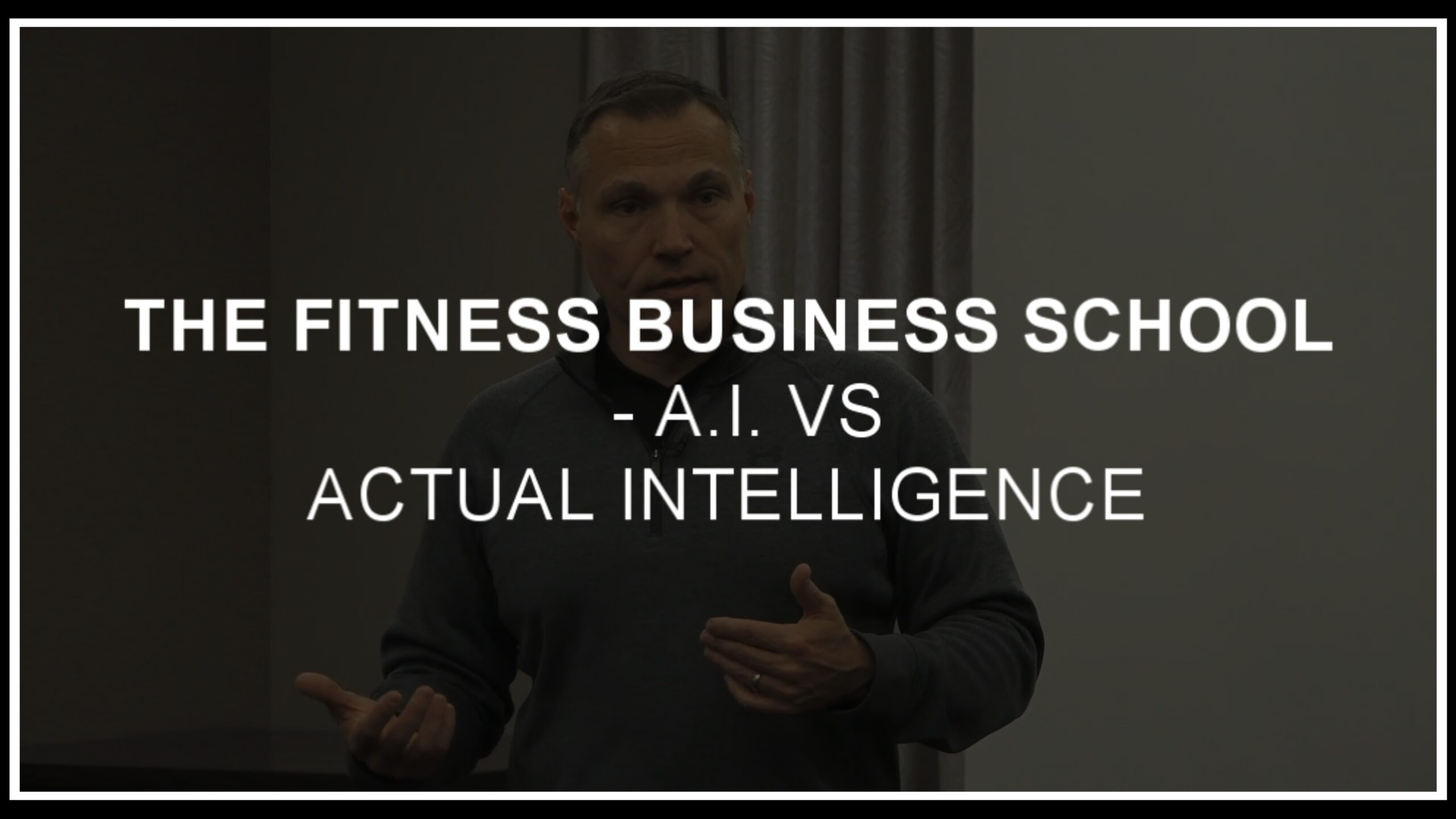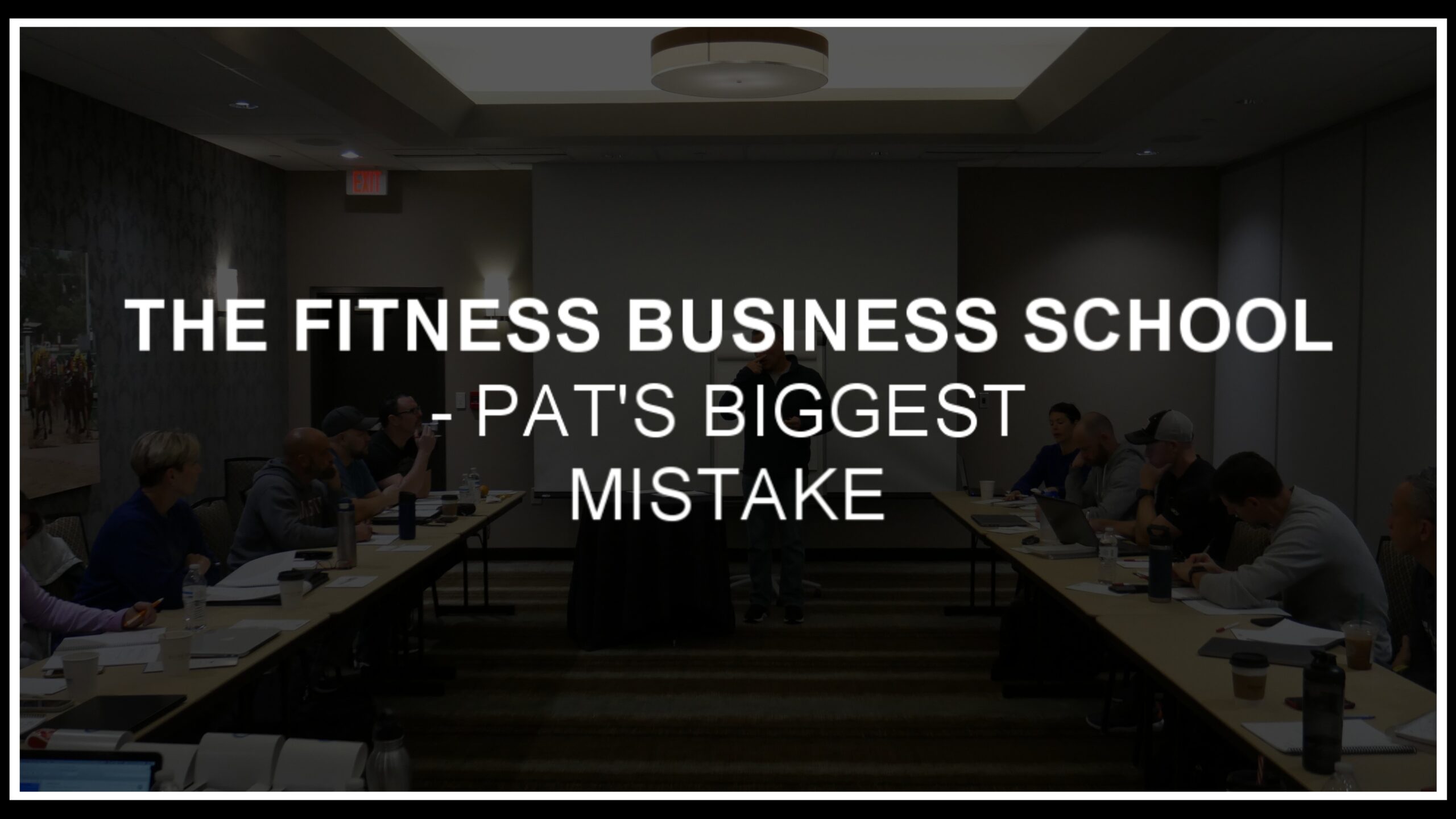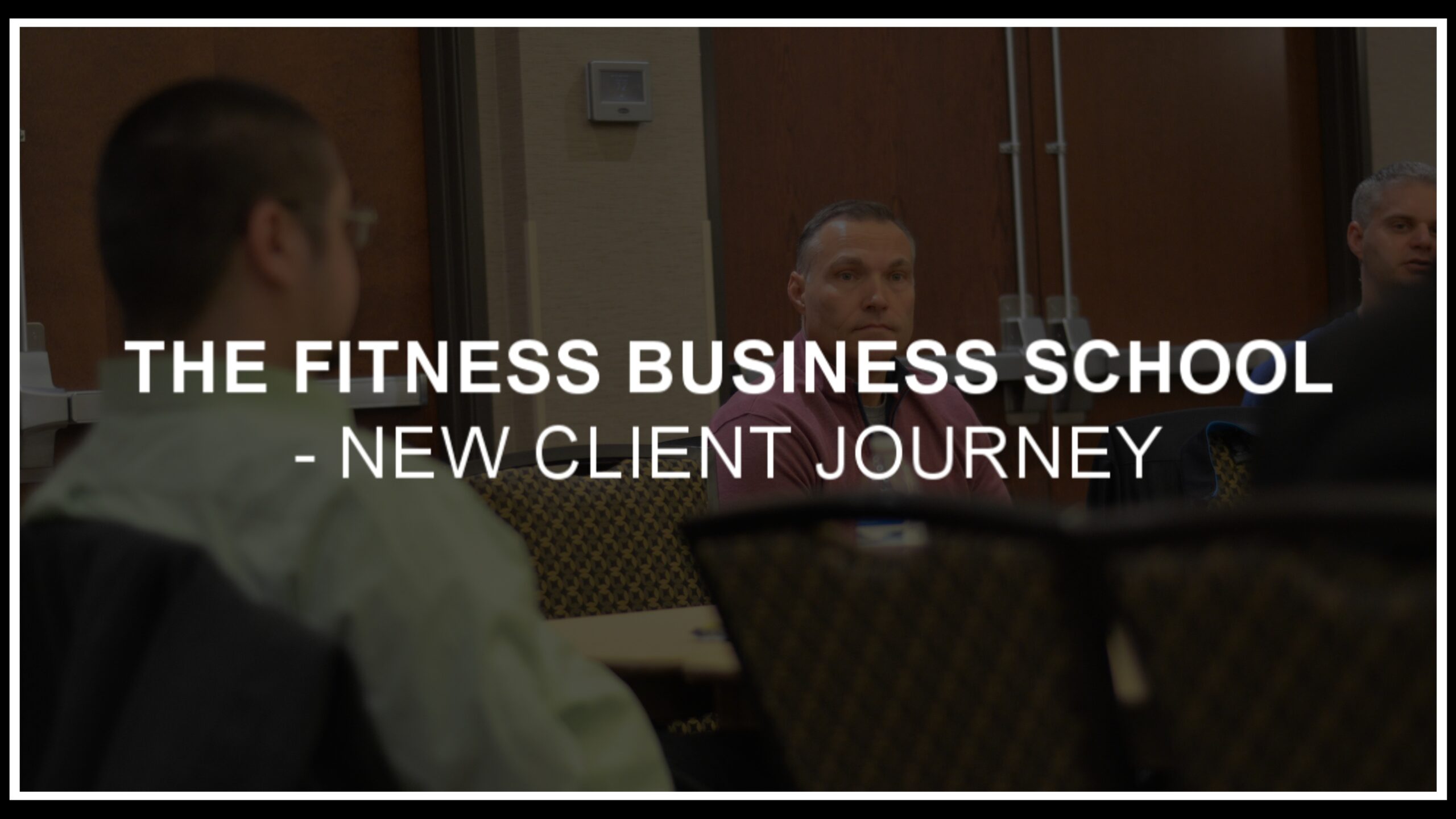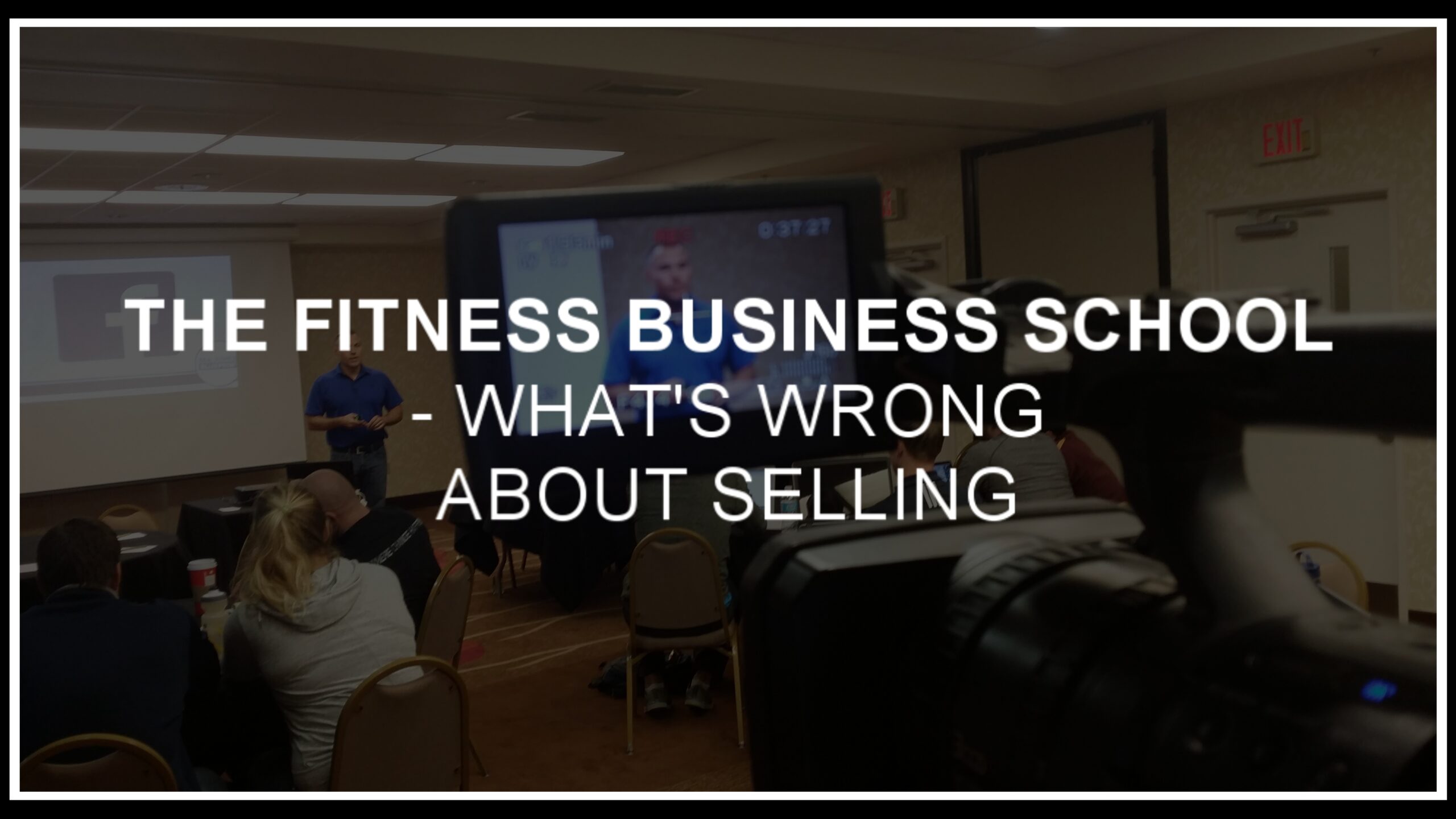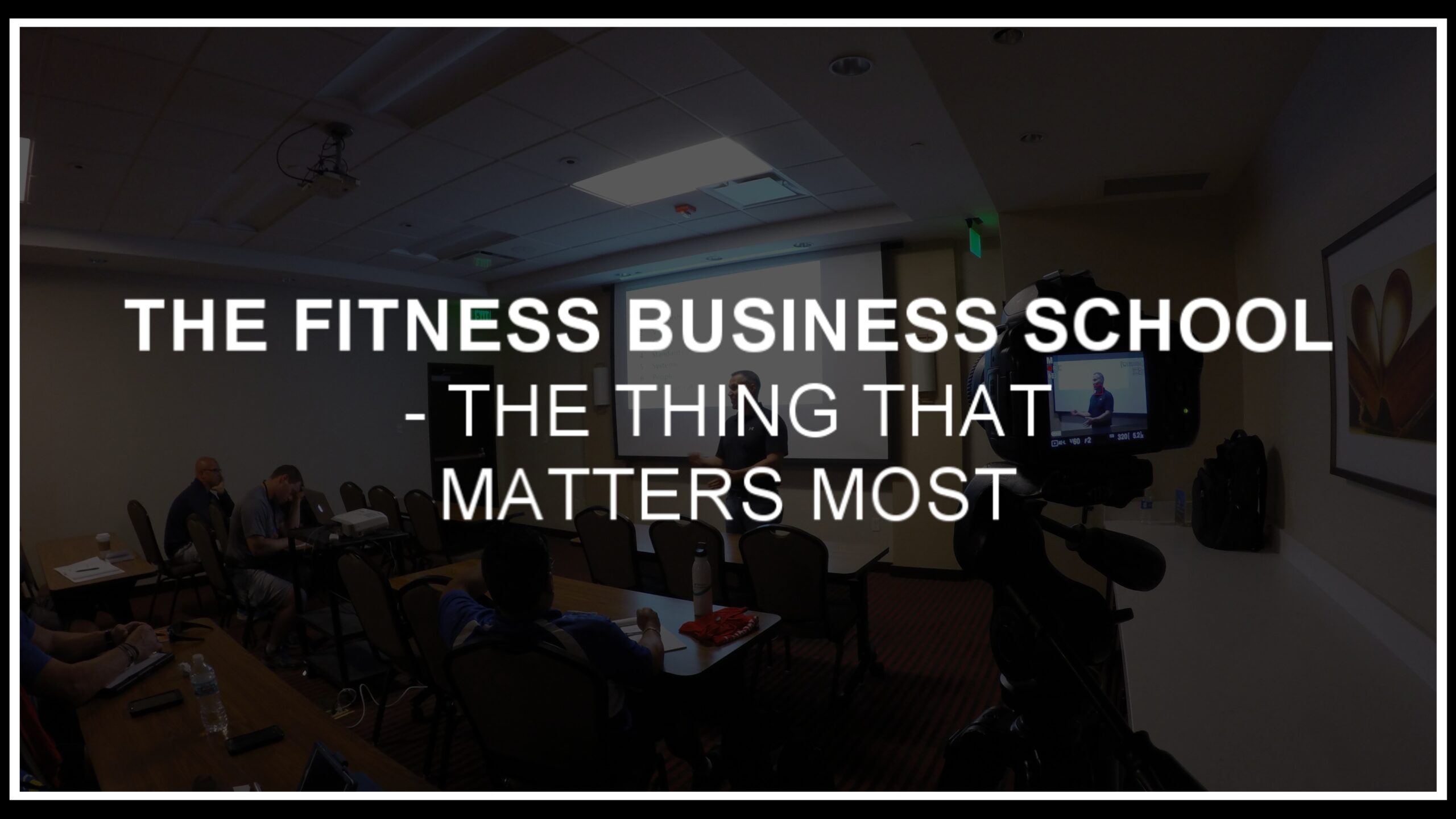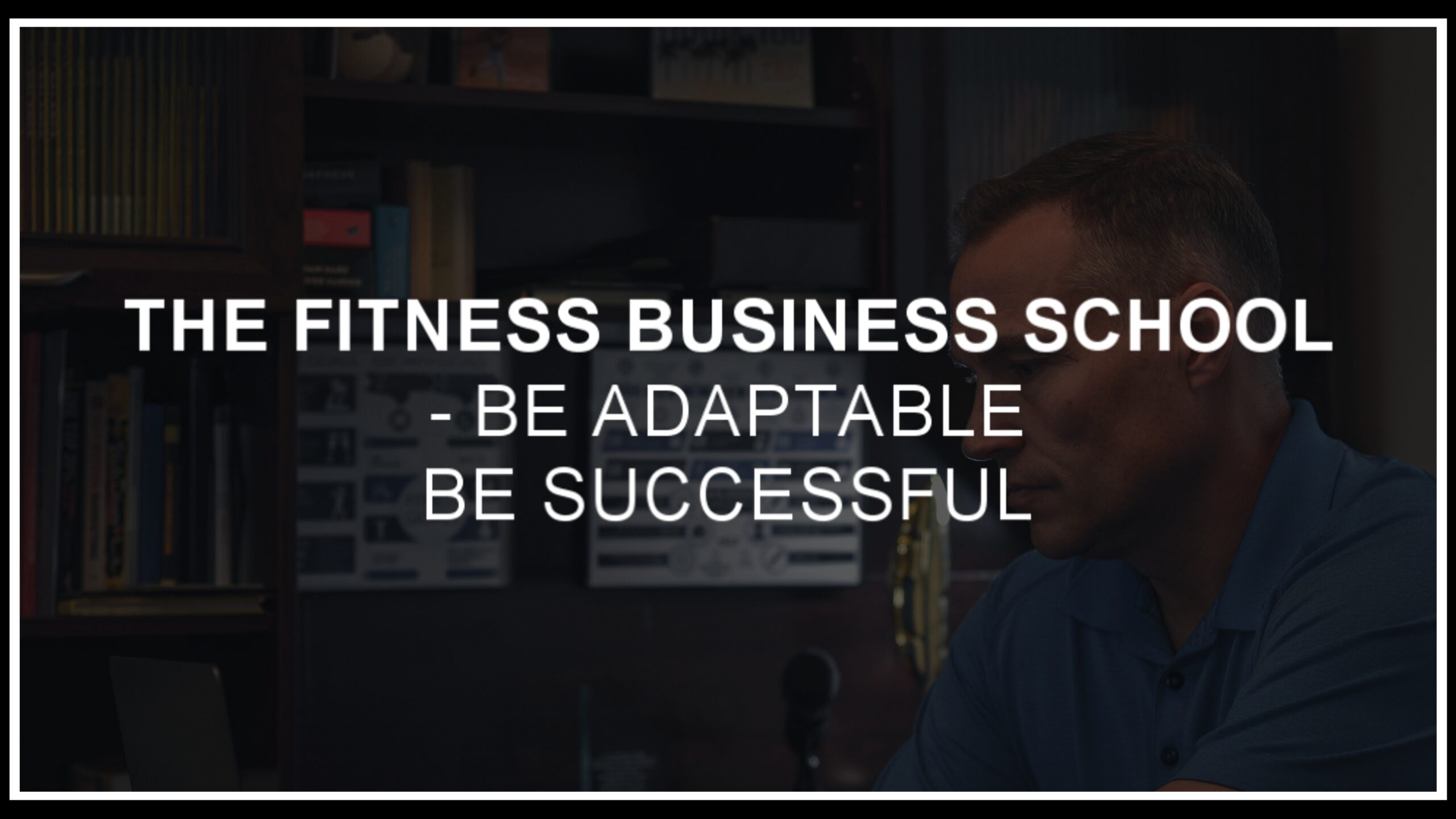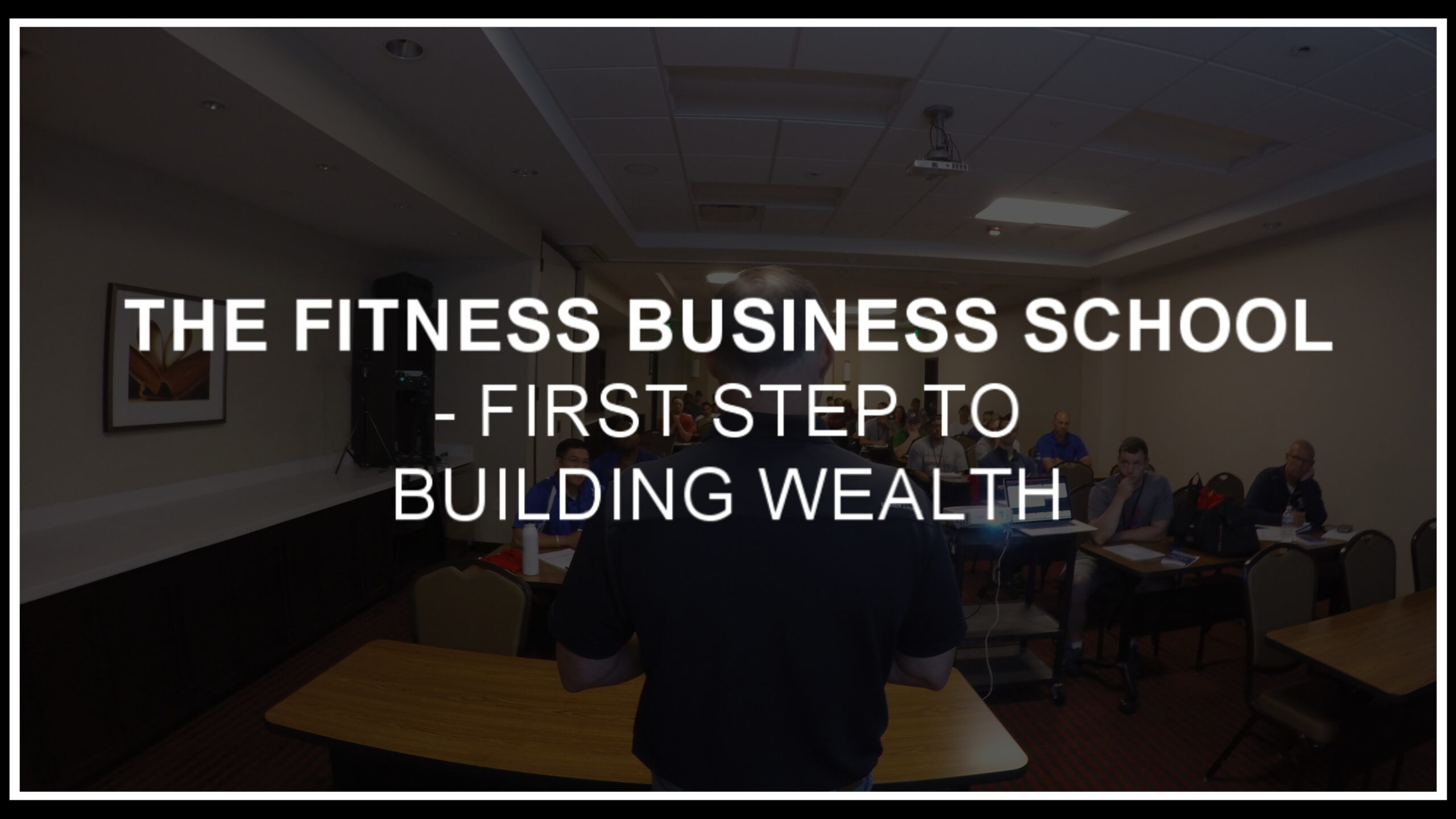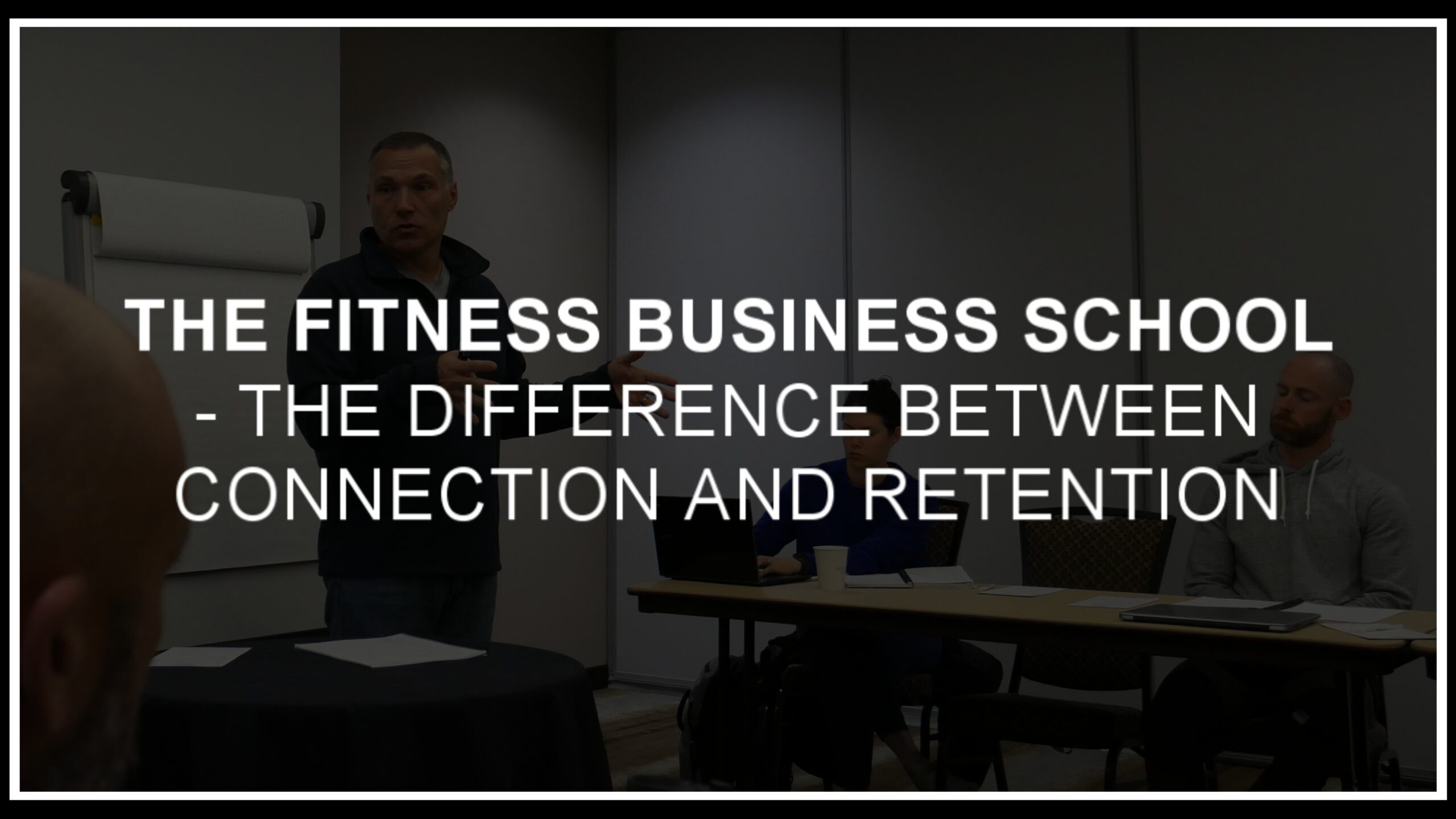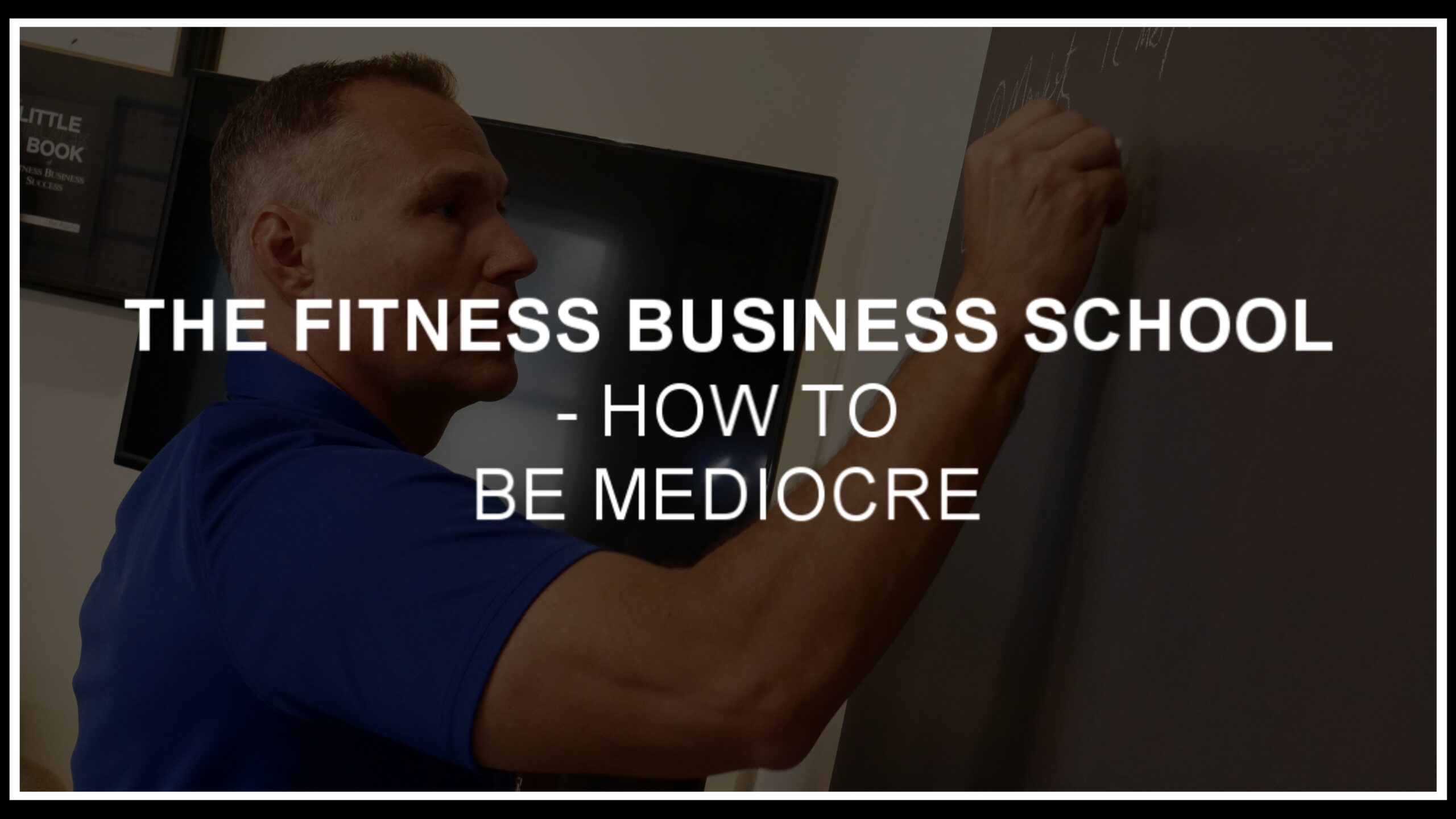Show Notes
- Focus on what won’t change
- Fitness is still a human-based business
- People are turning to AI for writing scripts – bland
- We don’t need more “information”
- Humans want connection and to fill valued
- Think of AI as a writing assistant – not an author
- Big companies cut corners – you should get more personal
- Don’t let AI steal the personality from your business
P.S. – 6-Weeks of Coaching…Free.
Get a surge of new clients and revenue over the next 6 Weeks with ZERO FEE and no obligation to continue?
If you’re a current business owner who wants to add 50K or more in annual revenue over the next 12 month, you can Test Drive our coaching program for 6 Weeks with no fee or even an obligation to continue as a way to demonstrate how we can help you grow your business.
No strings attached. No obligation. You get our best coaching & tools…and hopefully, you’ll love it enough that you want to keep working together.
Would you be interested in discussing?
If so, email me here with ‘interested’ in subject line and we’ll set up a chat.
Full Transcript
Hey, Pat Rigsby here, and in today’s episode I wanna talk with you about the difference between actual intelligence and artificial intelligence. Let’s get started.
Welcome to the Fitness Business School podcast, the show for fitness business owners who want to grow their income, increase their impact and improve their lifestyle. Be sure to listen till the end of this episode because we have a brand new special offer exclusive for listeners. So stay tuned.
One of the hot topics that have really come up more recently in the circles that I operate at least, is artificial intelligence. Things like chat, GPT,
and all the various tools and platforms that have kind of used that and similar things as the engine behind them and how AI is going to impact what we do. And I think I’ve got a mixed bag of thoughts on this, but there are a couple things that, that I default back to.
And one is something that I read a long time ago from Jeff Bezos that I’ve really taken to heart is rather than building around the things that are going to change, first focus on the things that won’t change. And so when I think about AI, that’s kind of one of those bedrock principles I adhere to. But the second part is I’ve had a couple friends who have been very heavily involved in that field. One that that was part of an investment fund that was involved with a bunch of AI
companies. And I think it’s going to certainly play a role in pretty much everything at some level. But in our industry specifically, I don’t think that it’s going to squeeze out the human element during the foreseeable future by any stretch, because, I mean, let’s face it, fitness is a human thing, whether we’re talking about the body composition side of it, the mental health side of it, the physical performance side of it that obviously is actual stuff, not artificial stuff.
And I think just the way that people operate the less personal we are from a service standpoint, the less likely somebody is to make it through the challenges that are associated with any sort of behavior change. And I see this very commonly when people do so much better when they have human accountability rather than some sort of artificial or app created accountability. The stuff that I see a lot of people write when it comes to what I think in the marketing side,
a lot of people have defaulted to trying to use AI to write their articles, to write their emails, to write their sales copy, to write their scripts. And I would tell you, most of it’s just not very good. It, it’s just bland. It’s just information. And we operate in a world right now that has more information at our
fingertips than we’ve ever had by a multiple of thousands, right?
If I think back to even the be like, when I was in college, I mean, you like went to a library, you looked at books I didn’t really utilize the internet to speak of until grad school. And the important piece of this is more is not necessarily better, right? Like, if there is so much information that is pouring over us, how do we make decisions? If you’ve ever read stuff like the paradox of choice that more options doesn’t necessarily make us better. In fact, in many
cases it confuses us, it paralyzes us, so us cranking out a bunch of bland information, it just gets ignored. I think people want to have a sense of connection. I think people want to feel important, they wanna feel valued.
They are obviously focused on their own self-interest, as are we. And if you are not in tune with that, it makes it much, much harder. I think at this stage and
obviously this stuff moves very quickly, but at this stage for me, something like chat, GPT or one of the handful of different platforms that I’ve tried that have used AI as kind of the backend I think of it almost like a writing assistant or a research assistant, but not the actual writer, not the author, right? And so if you’re looking for a, a bunch of potential ideas for something to write about, well, sure, yeah, I think it can be a simple way to brainstorm a bunch of ideas. If you’re looking for ideas for headlines, sub headlines, those sorts of things for writing, it can certainly provide you with those sorts of things.
It can go and do some research on your behalf. But I will say that I was playing with it just yesterday, helping my son Alex, on a, a research project. And he needed to go find sources for something that he could go look up something for a project. And I said, well, okay, rather than me just use Google, I’m gonna try this to see if it gives me specific sources, and it provided me 10 different links, seven of them didn’t work. And it’s an imperfect tool that certainly gets more effective, like with most, most things, right? We’ve always heard like, the better you want better answers, ask better questions. If you want better outcomes
from using AI as your assistant, then give it better prompts.
But that doesn’t replace the human element of this. I mean people are going to do better the more connection they have to you and I don’t think we’re remotely close to people evolving so much that that’s not a motivator for them. I think that if you know somebody is waiting on you, if you have an appointment that you have to show up, if you have to be accountable to another person, that is going to be more of a motivator for you than if you just get a random push notification
that you know, no other human being is looking at. And so we need to use this to our advantage. And most of the people listening to this podcast are independent business owners. Not, certainly not everybody, but if you are an independent business owner, understand that a lot of
times your competition in the franchised world, in the corporately owned world is looking for ways to create as much leverage as possible.
That’s why you see so many of the franchises, most of the franchises being either rent you access to stuff like a like a Planet Fitness or most of them being group training based businesses, large group training based businesses. And ideally, most of them make it about the program, not about the
person, not about the relationship. And that’s how they, they make things scalable. That’s how businesses often can get to a place where it becomes owner offsite and not owner involved heavily. And so they’re going to look for ways to automate things and streamline things. They want to cut payroll, they want to be able to put TVs on the wall that guide people through workouts and only have an instructor in there. From my perspective, that creates an opportunity for us. The more personal you can be, the more high touch you can be, the more I mean I used the example and the headline for this actual intelligence versus art artificial.
Well, if you want to create an actual human experience rather than an artificial experience with somebody, that’s going to be a differentiator for you. And I think that that differentiator is only going to grow as so many people try to take a shortcut and say, you know what? I’m gonna have AI do this for
me. I’m gonna have AI do that for me. And I mean, AI can probably, with the right prompts, go and create a training program for somebody, but realistically, is that person gonna follow it? Is it customized to what that person actually needs? Not just a simple prompt that they typed in. I
would say more often not, the answer is no. So how do we take this and use this to our advantage? See, this is a tool and, and I think it can certainly be a valuable tool for you that gives you almost like rocket fuel to go faster because it gives you ideas quicker.
It gives you the ability to access research quicker. It probably can do some things pretty inexpensively for you. Even free. Or if you’re paying the $20 for the, the plus version of something or something like that, that’s probably gonna be more cost effective for you than hiring a, a part-time research assistant. So it, it’s gonna allow you to go faster. But please don’t let you know it sap the human, the personality out of your business. I think that would be at this stage of the game for an independent business owner, pretty much a catastrophic mistake because the, I mean, social media certainly doesn’t need more random information posted. Google doesn’t need more random information posted. Think better, think higher quality, not more quantity. If you do that, if you think
about the human side of this, the, the connective side of this, you’re gonna be so much better off. So if you’re wondering how AI fits into your business, understand that it’s a servant, not a master.
Thanks for listening to this episode of The Fitness Business School.
Before you go, I’ve got a quick announcement. When I first connect with fitness business owners, they almost always ask me how I can get more clients and make more money. Well, I’ve got an exclusive offer for you and it’s gonna help you do just that.
And as a listener of this show, I would love to invite you to a conversation where you and I can talk about our new program, the Business Growth Sprint.
The Business Growth Sprint is a one-of-a-kind program where you get everything you need.
We actually work with you one-on-one, unlimited, one-on-one coaching and support.
We design a marketing plan for you. We give you assets to execute the plan.
It’s unmatched in our industry between the level of coaching, the frequency of accountability, the simple step-by-step nature and the completeness of how it’s gonna guide you to making more money and improving your personal income fast.
Imagine having every tool, template, ad, and script that you need all ready-to-use. Plus you’re going to get one-on-one access with me and the other coaches on my team to make sure that everything from your business growth plan to your marketing and sales system is done, turnkey, ready to go.
And what’s great is there is zero risk. We guarantee that you are going to add at least $4,000 a month in recurring revenue, or $20,000 a month cash collected as part of this program in just four months.
So if you are interested, if you’d like to discuss and see if this is a fit, just shoot me an email at [email protected] and put Sprint in the subject line and I’ll get you all the details.


